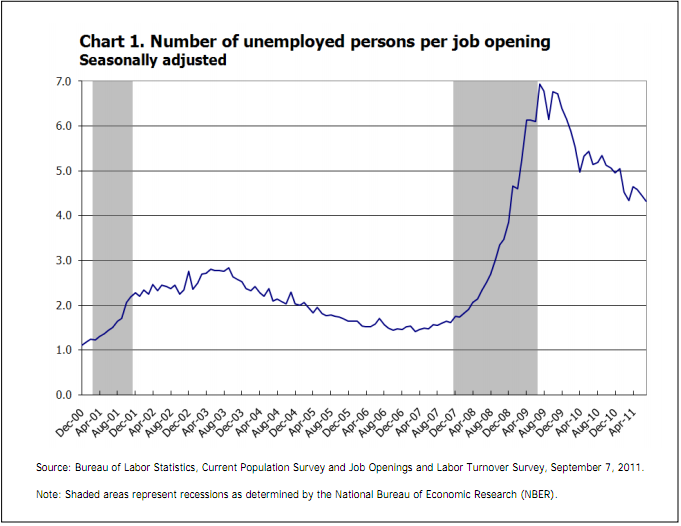Obama’s speech to Congress on Sep 8, and the jobs crisis in general, contained a lot of percentages and statistics. Some can be difficult to navigate through or find, so below is a collection of a few of those recently released.
- The New York State Department of Labor released a report saying that 14,100 private sector jobs were added in July. Altogether, they’ve regained 57 percent of private sector jobs lost during the recession. This sounds like good news. However, the unemployment rate in the state (from that same report) is still at 8 percent. In fact, outside of New York City, unemployment has actually gone up by 0.1 percent in the rest of the state.
- Part of the point of the Recovery Act of 2009 was to stave off the worst effects of the recession on the jobs market. Unfortunately, these funds were only a temporary stopgap measure. As can be seen on the third page of this Congressional Budget Office report on the estimated impact of the stimulus on employment, the predicted affect of the funds on the unemployment rate is about to drop off dramatically from 2011 to 2012.
- The conclusion? If private sector jobs are being added as swiftly as public sector jobs are cut, the unemployment rate will, unfortunately, not change very much. Or worse. The latest Job Openings and Labor Turnover Survey release from the Bureau of Labor Statistics paints a much more accurate, albeit bleaker, picture: for every four unemployed people, there is only one, solitary job opening.
- In the end, the best place to link to for now is probably the UI Benefits Calculator.



